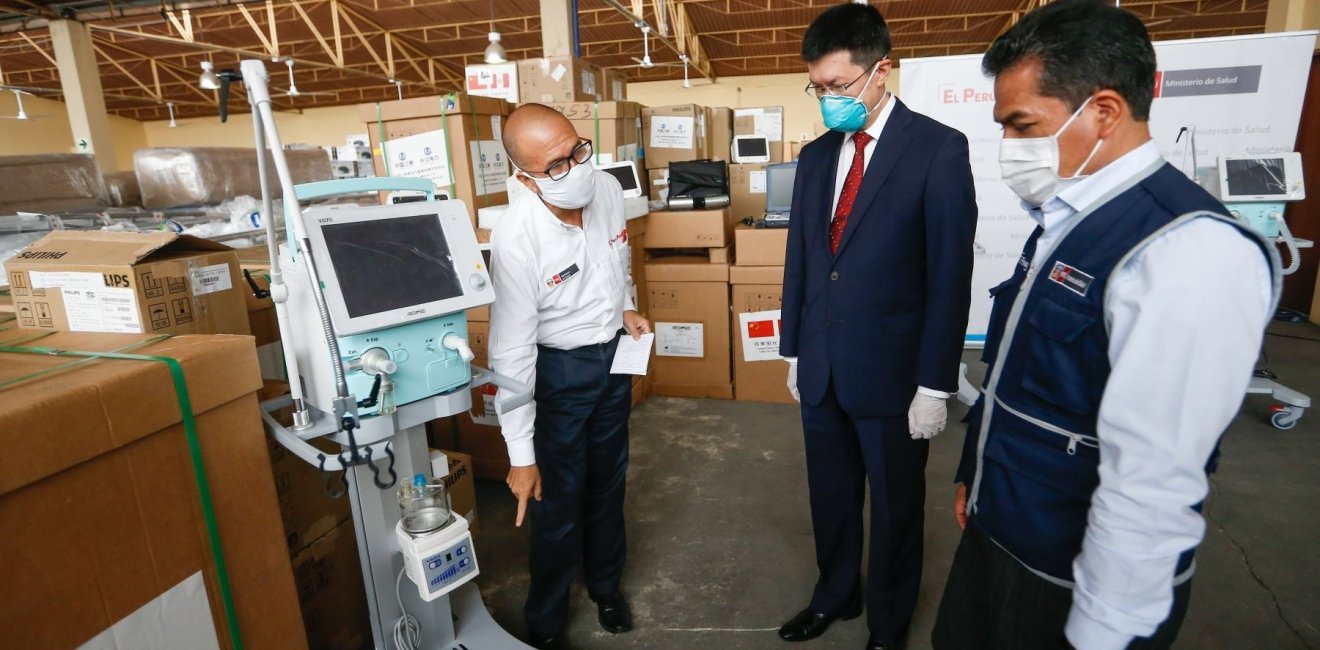
A blog of the Latin America Program
Masked Rivalry
By Beatriz García Nice and Catherine Soltero
The Trump administration spent years bemoaning China’s increasing influence in Latin America, but the COVID-19 pandemic has only amplified Beijing’s role in the region.
Latin America has suffered 30 percent of the world’s coronavirus deaths and a seven percent economic contraction, leaving governments desperate for outside assistance to combat the virus’s health, economic and social shockwaves. From the onset of the pandemic, China saw an opportunity to expand its influence through coronavirus aid. While the United States struggled to control the virus at home, China launched a “mask diplomacy” campaign that involved rapid and large-scale distribution of critical medical supplies, including ventilators and personal protective equipment. Lately, it has also been shipping vaccines to Latin America, earning praise from leaders overwhelmed by the pandemic’s devastating second wave.
Though belatedly, the United States has also responded to Latin America’s pandemic challenges, providing over $250 million through USAID, the U.S. Department of State and the U.S. Southern Command. Comparisons are difficult given the lack of transparency in China’s assistance programs and the U.S. preference for a multilateral pandemic response, including U.S. funding for vaccine distribution through the World Health Organization’s COVAX program. But it is clear that “medical diplomacy” is shaping Latin America’s international relationships and the images of rival powers. This is especially true in countries including Brazil, Chile, Honduras, Paraguay and Uruguay, which are experiencing the most rapid COVID-19 spread since the start of the pandemic.
To explore the U.S. and Chinese COVID-19 responses in Latin America, visit our Latin American Program interactive database and read our reports by Cynthia Sanborn, Jorge Heine, Haibin Niu, Jean Manes and Annie Pforzheimer.
Authors



Latin America Program
The Wilson Center’s prestigious Latin America Program provides non-partisan expertise to a broad community of decision makers in the United States and Latin America on critical policy issues facing the Hemisphere. The Program provides insightful and actionable research for policymakers, private sector leaders, journalists, and public intellectuals in the United States and Latin America. To bridge the gap between scholarship and policy action, it fosters new inquiry, sponsors high-level public and private meetings among multiple stakeholders, and explores policy options to improve outcomes for citizens throughout the Americas. Drawing on the Wilson Center’s strength as the nation’s key non-partisan policy forum, the Program serves as a trusted source of analysis and a vital point of contact between the worlds of scholarship and action. Read more


Argentina Project
The Argentina Project is the premier institution for policy-relevant research on politics and economics in Argentina. Read more


Brazil Institute
The Brazil Institute—the only country-specific policy institution focused on Brazil in Washington—aims to deepen understanding of Brazil’s complex landscape and strengthen relations between Brazilian and US institutions across all sectors. Read more

Explore More in Weekly Asado
Browse Weekly Asado
Dengue Haunts South America’s Summers

Lessons from Costa Rica’s Economic Transformation

Women and Latin America’s Digital Revolution

